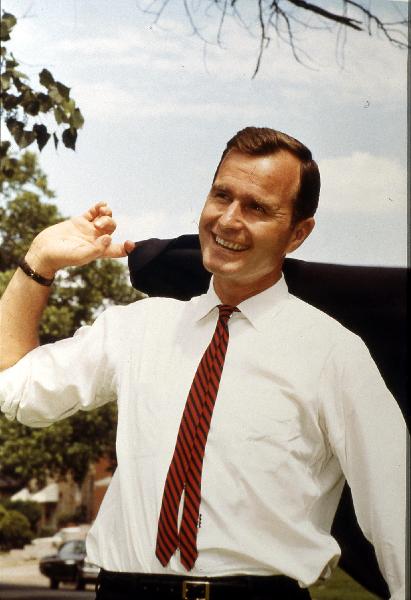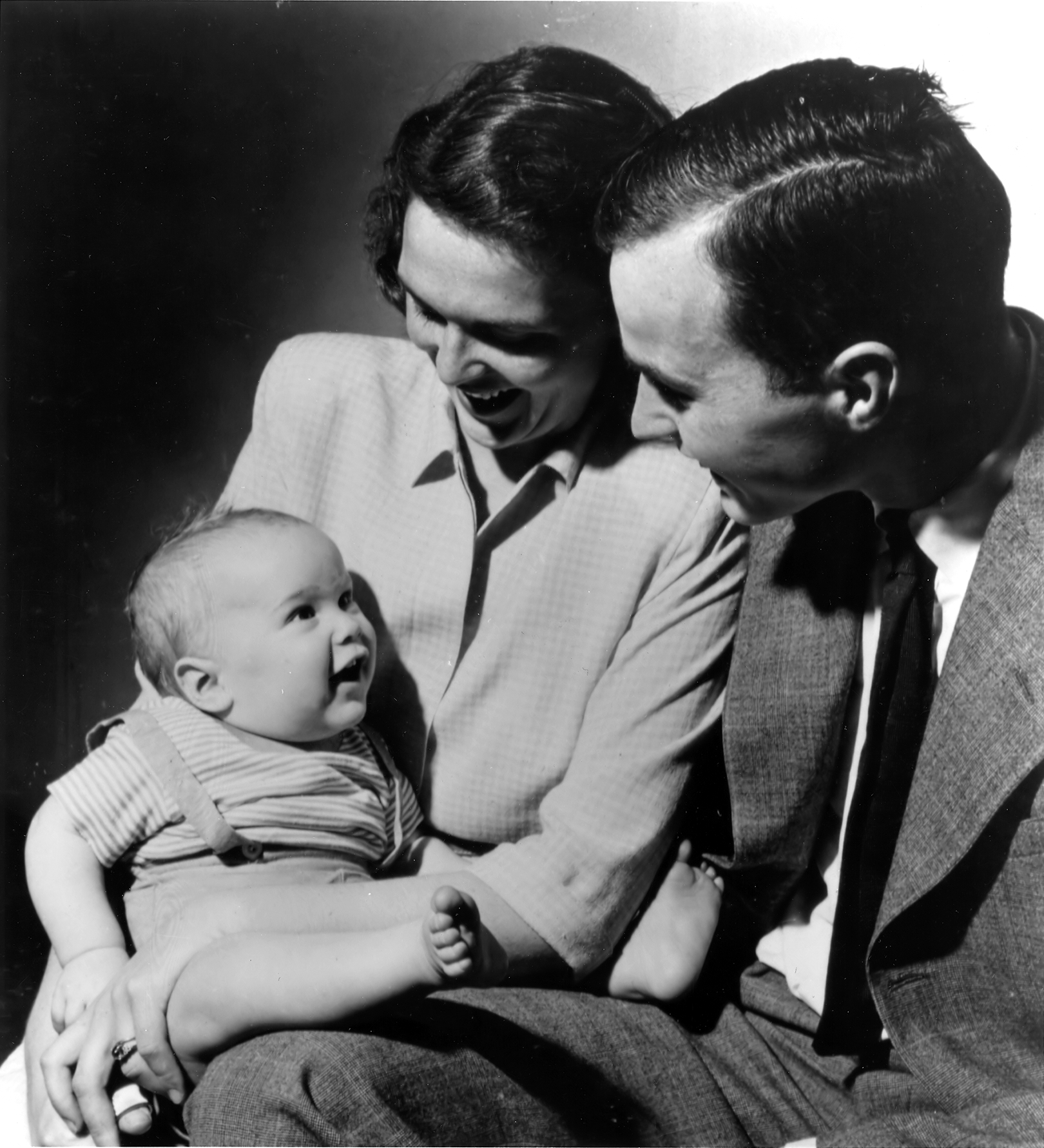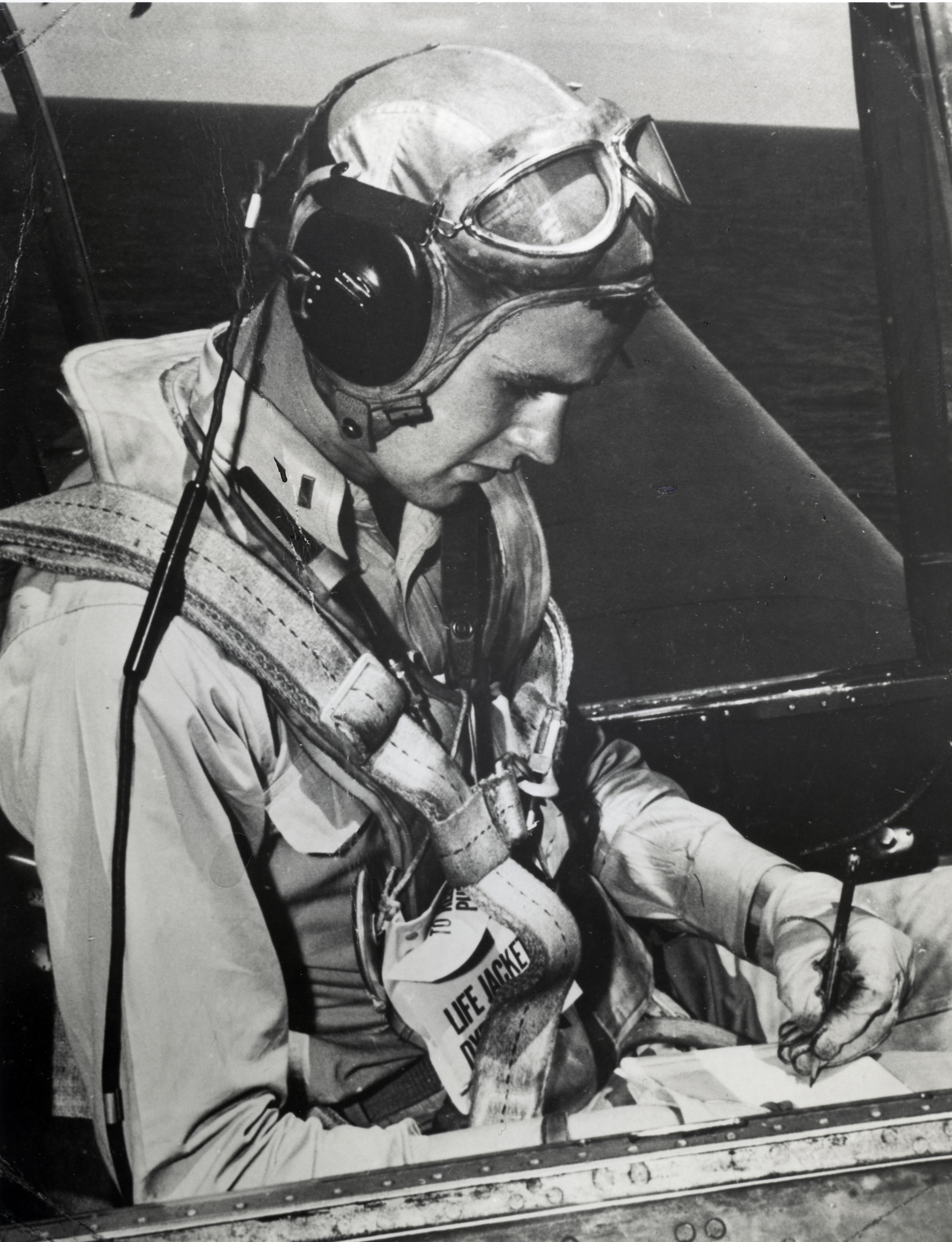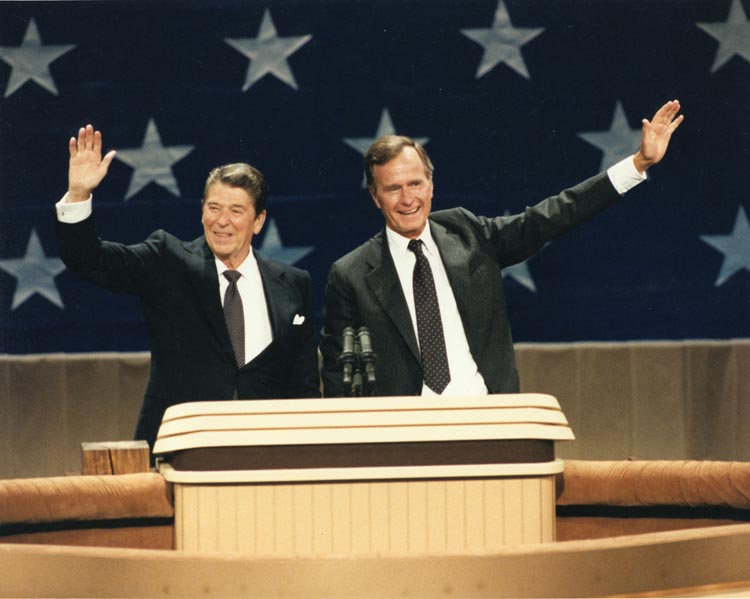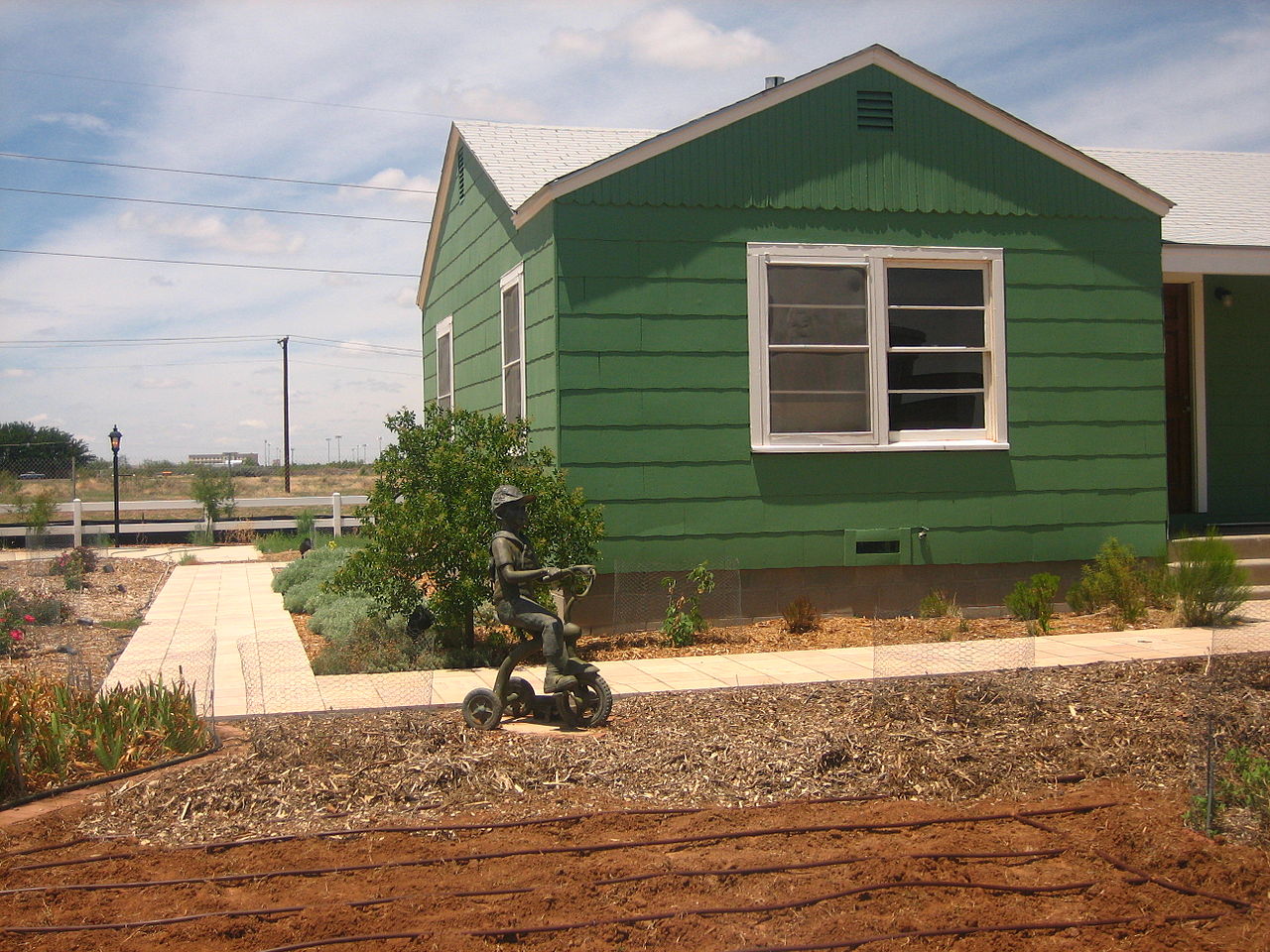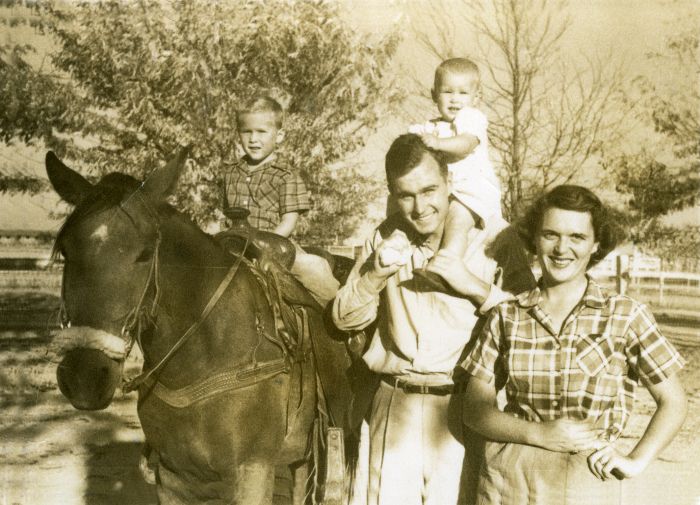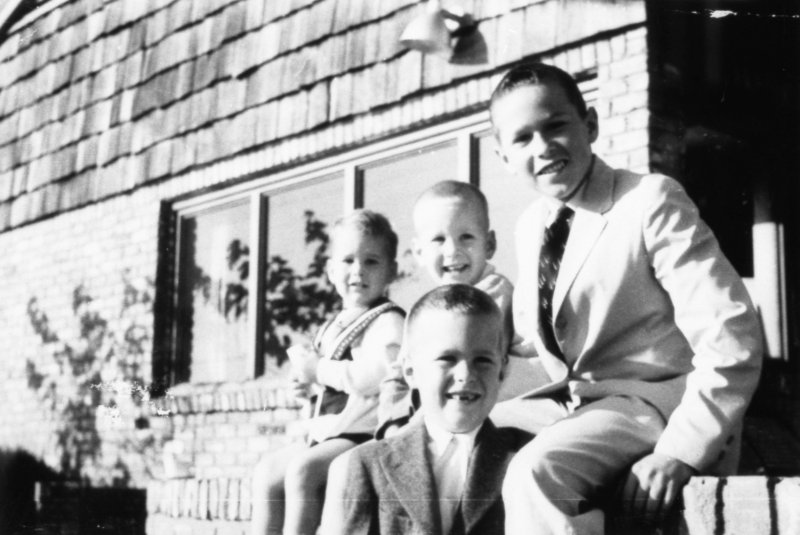George H.W. Bush took his family and his fresh Yale degree and spurned the hoity-toity of the blueblood, patrician Eastern seaboard life he knew, to plunge himself into the redblooded, gritty, bootstrap worklife of the Permian Basin.
Official portrait of the 41st U.S. President
There may never be another American president with closer personal ties to the Permian Basin than the recently departed George Herbert Walker Bush. A former resident of not just Odessa but Midland as well, he came to the Basin of his own choice—not transferred or assigned here by an employer, and not pressed into a role here by circumstances beyond his control. Almost straight from college graduation, he took his family from the East Coast to a new life in the big, spacious, frontier-tinged country that is the Permian.
As a tribute to his place here, we share some details from that era of the Bush family and its connections to this region. Our sources for this coverage are primarily the leading biography of Bush (Destiny and Power: The American Odyssey of George Herbert Walker Bush, by Jon Meacham) and various Wikipedia references on Bush, his connections, and his business interests. The former we will cite simply as “Meacham” and the latter as simply “Wikipedia.”
Born in Milton, Mass., to Prescott Sheldon Bush and Dorothy (Walker) Bush on June 12, 1924, George H.W. Bush was raised in Greenwich, Connecticut. His father Prescott was a banker and, for two terms, a U.S Senator. Son George grew to be a natural athlete and a leader among his peers. With the outbreak of World War II, he enlisted in the U.S. Navy, became a carrier pilot, and won the Distinguished Flying Cross, among other honors, for his military service.
He won the Distinguished Flying Cross, among other honors.
After the war, he completed his degree at Yale and by 1948 was off to the Permian. Housing there was tight, with a boom going on, and the young family had to settle for modest digs. As Bush’s eldest son, George W. Bush, would later recount, they lived in one-half of one of the few duplexes in Odessa that had an indoor bathroom. The other half of the duplex was occupied by, in W.’s later words, “a couple of hookers.” Meacham, in his biography, stated that the two units shared the one bathroom, and sometimes the clients of the hookers would lock, from their side, the door that gave the Bush family access.
Still, there was much to like about Odessa and the Basin, as the elder Bush has said on multiple occasions. He got down to business with his new employer. He worked for Ideco, a division of Dresser Industries, which survives today in the form of Halliburton (Dresser merged into Halliburton in 1999), and Dresser-Rand, which was formed when Dresser Industries merged [into Ingersol-Rand] those business interests it held in common with Ingersol-Rand, forming the entity since known as Dresser-Rand.
Meacham: “Reading trade journals, minding the Ideco store, and beginning to work as a salesman, Bush was learning the rudiments of the oil business. One day early in his stay in Odessa, he was assigned the task of painting some pumping units—while they were pumping. Bush and Hugh Evans, a Texan with what Bush recalled as ‘a gift for fading into the scenery at the slightest hint of physical labor,’ were sent out into the heat by their boss, Bill Nelson. ‘The units we were supposed to spruce up were monsters that had been baking in the sun for weeks,’ recalled Bush. ‘That meant trouble, because the only way to paint a pumping unit is to move, top to bottom, straddling the main beam as you go. Imagine riding a hot branding iron without a saddle and you’ve got the picture.’
“Bush was learning the rudiments of the oil business.”
“The savvy Evans painted a bit around the base of the pump then took a cigarette break in the shade of a nearby tree. ‘Hey, George, you know what the thermometer read when we left the store?’ Evans asked. ‘A hundred [and] five degrees.’ Bush, riding the pump in the harsh sun, was feeling every one of those degrees. ‘One hell of a day to send folks out to paint a damn pumping unit, if you ask me.’ Evans said. ‘It just ain’t fair.’ After watching Bush, who was ‘wrung out,’ finish the job, Evans asked the weary Bush, ‘George, would you mind if I ask a personal question?’
George W. Bush with his mother, Barbara Bush; father, George Bush; and grandparents, Dorothy and Prescott Bush, in Midland, Texas.
George H. W. Bush in the cockpit of an Avenger. Photo courtesy George Bush Presidential Library and Museum.
“’That depends, Hugh. What is it you want to know?’
“’Just tell me,’ he said, “whatever brought you to Texas?’”
By 1949, just one year in, Bush, who had a tendency to be a worrier, decided that he was not good at the business of selling, which was essentially what his Ideco role was supposed to be. But he did allow that the job was unfolding in an interesting fashion. By this time Ideco had located him in Midland.
Barbara and George (holding baby George W.) greet George’s parents Dorothy and Prescott (the latter a U.S. Senator) at the airport in Midland in 1949
Meacham: “Bush wrote to a friend: ‘I drive around to rigs and small company offices, and so far I have sold nothing.’ Yet he knew he had made the right move. ‘This West Texas is a fabulous place. Fortunes can be made in the land end of the oil business, and of course can be lost…. If a man could go in and get just a few acres of land which later turned out to be good he would be fixed for life.’ Money, however, was not the only thing driving him. In 1949, Bush—then 24 years old—wrote, ‘I have in the back of my mind a desire to be in politics, or at least the desire to do something of service to this country.’”
“He was assigned the task of painting some pumping units—while they were pumping.”
That would have to wait, though. The oil business consumed George H.W. Bush.
Meacham: “A man of enthusiasms and quick decisions—falling in love with Barbara, joining the Navy, moving to Texas—Bush was coming to believe that his future lay not with Dresser but with an independent oil venture. He liked the idea of choosing the riskier path over the safer route.”
By late 1950, Bush had formed a friendship with John Overbey, whom Meacham described as being a neighbor, a fellow backyard barbecuer, and an independent oilman.
Meacham: “Overbey thought there was almost a physical force to Bush’s ambition. Bush, he recalled, had ‘caught the fever and decided there must be a better way to participate in the excitement than selling hardware for Ideco.’ Bush and Overbey talked to over. Maybe they should join forces, go in together, and make some real money…. Bush loved the idea.”
They started the Bush-Overbey Oil Development Company in 1953, drilling in the Texas portion of the Permian Basin. After two years of that—which for Bush meant getting his feet on the ground in the business—he (Bush) was ready to stretch himself further.
Reagan and Bush at convention time
Meacham: “In Midland in 1953 [Bush was] hurling himself into his latest business venture: a new oil company with additional partners. The Liedtke brothers, Hugh and Bill, came from Oklahoma. Like the Bushes and the Overbeys, they were part of the new social fabric of Midland. Why not team up on the oil front? The result was a new company. Bush-Overbey and the Liedtkes each put up $500,000, creating $1 million in equity. But what to call it? Hugh Liedtke had a simple rule of thumb: Pick a name that started with either A or Z, so you would be the first or last in the telephone listings. With that in mind, the team chose Zapata Petroleum Corporation, after the Marlon Brando movie Viva Zapata!, which was playing in Midland.
“The Association with the Liedtkes proved profitable. Under the Zapata name, Bush and his colleagues found success in Coke County, Texas, drilling 127 wells without a dry hole on the 8,100-acre West Jamieson field. The West Jamieson wells were steady producers, not gushers, and they gave Bush’s business a solid foundation. Over the next decade or so, Bush struggled to build an international business…, pursuing offshore opportunities from the Persian Gulf, including Kuwait, to Mexico, Japan, Ecuador, and Trinidad.”
Another key figure in the formation of Zapata was Thomas J. Devine.
The Bush family residence in Odessa
“A man of enthusiasms and quick decisions… he liked the idea of choosing the riskier path over the safer route.”
Wikipedia: “Zapata Petroleum began in 1953 through Bush’s joint efforts with Thomas J. Devine, a CIA staffer who had resigned his agency position that same year to go into private business, but who continued to work for the CIA under commercial cover. Devine would later accompany Bush to Vietnam in late 1967 as a “cleared and witting commercial asset” of the agency, acted as his informal foreign affairs advisor, and had a close relationship with him through 1975.”
Zapata ventured into offshore drilling in 1954, but it would be five more years before the Bush family moved themselves and their business to Houston. Thus ended their 11 year sojourn in the Basin, but the region would remain an important touchpoint for the Bush clan and would remain in their hearts forever.
Wikipedia: “Bush continued serving as president of the company until 1965, and later chairman until 1966, when he won election to the U.S. House of Representatives. By that time, Bush had become a millionaire.”
“Overbey thought there was almost a physical force to Bush’s ambition.”
On Dec. 1, the Midland Reporter-Telegram offered these well-phrased sentiments in memory of George H.W. Bush:
“Midland ISD made the right call in honoring the elder Bush by naming an elementary school for him. And the United States courthouse bears the name of father and son—an honor to two former presidents who once called Midland home.
“Joan Baskin called Bush a ‘great citizen of Midland, Texas.’ He was in West Texas around a decade, and Bush and his wife, Barbara, made an impact in helping a growing community. An appreciation for volunteerism was in effect in Midland long before It became a point of light.
“The conversation about Bush will go on in Midland and around Texas and the nation. But his legacy seems pretty much cemented. He was a man of his word, a person who believed in community and championed volunteerism, a leader like [many will never see again in their lifetime], and a person who made Midland a better place.”










